Monthly Archives: November 2023
California commercial Dungeness crab fishing season delayed
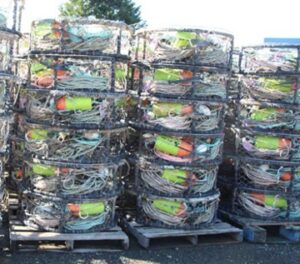 The California Department of Fish and Wildlife announced a delay in the season opener for California commercial Dungeness crab fishing off the Central and Southern Coast to protect whales from entanglement. The decision is based on a combination of excessive humpback whale entanglements in California Dungeness crab gear over the last three years and high numbers of recent humpback whale sightings off the central coast according to CDFW’s Risk Assessment and Mitigation Program criteria. Due to number of entanglements, NMFS is proposing to upgrade the California commercial Dungeness crab fishery to a Category I fishery,,, >>click to read<< 08:09
The California Department of Fish and Wildlife announced a delay in the season opener for California commercial Dungeness crab fishing off the Central and Southern Coast to protect whales from entanglement. The decision is based on a combination of excessive humpback whale entanglements in California Dungeness crab gear over the last three years and high numbers of recent humpback whale sightings off the central coast according to CDFW’s Risk Assessment and Mitigation Program criteria. Due to number of entanglements, NMFS is proposing to upgrade the California commercial Dungeness crab fishery to a Category I fishery,,, >>click to read<< 08:09
Man with rifle fires 2 shots across commercial fisherman’s bow off Florida Keys
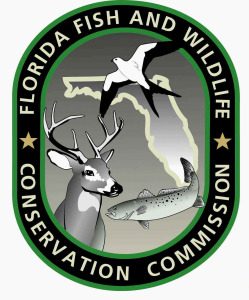 An argument between a recreational angler and a commercial fisherman off the Florida Keys nearly turned fatal Tuesday morning when the angler fired a rifle across the bow of the other man’s boat, police said. The incident happened around 9 a.m. on the oceanside of the Keys, about seven miles off Rodriguez Key, which is east of Key Largo, according to the Florida Fish and Wildlife Conservation Commission, the lead investigating agency. Arielle Cellender, an FWC spokeswoman, said the two men’s vessels were close to each other when they began arguing. >>click to read<< 07:01
An argument between a recreational angler and a commercial fisherman off the Florida Keys nearly turned fatal Tuesday morning when the angler fired a rifle across the bow of the other man’s boat, police said. The incident happened around 9 a.m. on the oceanside of the Keys, about seven miles off Rodriguez Key, which is east of Key Largo, according to the Florida Fish and Wildlife Conservation Commission, the lead investigating agency. Arielle Cellender, an FWC spokeswoman, said the two men’s vessels were close to each other when they began arguing. >>click to read<< 07:01
Two fishermen who disappeared at sea nine years ago drowned in tragic accident, coroner rules
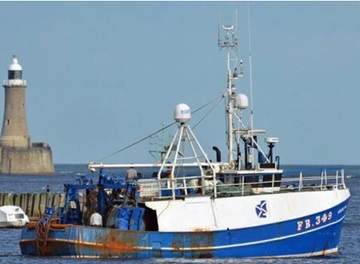 Two crew members drowned in a tragic accident when the boat they were fishing on sank in the North Sea, a coroner has ruled. Michael Pulpul, 38, and Jhunitzquo Antonio, 34, disappeared when the Ocean Way trawler which were were travelling on got into difficulty around 100 miles off the coast of Northumberland. The vessel sank on November 2, 2014 and their bodies have never been found. The pair, who were from the Philippines, were travelling with two other crew members from the same country – Rumulo Rocha and Nixon Ocon – and one of the boat’s skippers James Noble, 45. Mr Pulpul, Mr Antonio and Mr Noble lost their lives when the boat, which Mr Noble co-owned with fellow skipper Billy Edwards, capsized during adverse weather conditions. Photos, >>click to read<< 15:08
Two crew members drowned in a tragic accident when the boat they were fishing on sank in the North Sea, a coroner has ruled. Michael Pulpul, 38, and Jhunitzquo Antonio, 34, disappeared when the Ocean Way trawler which were were travelling on got into difficulty around 100 miles off the coast of Northumberland. The vessel sank on November 2, 2014 and their bodies have never been found. The pair, who were from the Philippines, were travelling with two other crew members from the same country – Rumulo Rocha and Nixon Ocon – and one of the boat’s skippers James Noble, 45. Mr Pulpul, Mr Antonio and Mr Noble lost their lives when the boat, which Mr Noble co-owned with fellow skipper Billy Edwards, capsized during adverse weather conditions. Photos, >>click to read<< 15:08
Fisheries and Oceans Canada doing a poor job of monitoring fishing industry: report
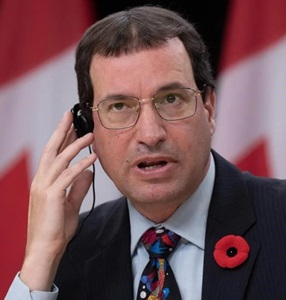 A new report slams the federal Fisheries Department for failing to properly monitor Canada’s commercial fishing industry. The report from the federal environment commissioner, Jerry DeMarco, says Fisheries and Oceans Canada lacks the ability to collect timely and dependable data about what is being caught. DeMarco says the dearth of reliable data means the department can’t protect Canada’s fish stocks from overfishing. The report from the federal environment commissioner, Jerry DeMarco, says Fisheries and Oceans Canada lacks the ability to collect timely and dependable data about what is being caught.>>click to read<< 13:02
A new report slams the federal Fisheries Department for failing to properly monitor Canada’s commercial fishing industry. The report from the federal environment commissioner, Jerry DeMarco, says Fisheries and Oceans Canada lacks the ability to collect timely and dependable data about what is being caught. DeMarco says the dearth of reliable data means the department can’t protect Canada’s fish stocks from overfishing. The report from the federal environment commissioner, Jerry DeMarco, says Fisheries and Oceans Canada lacks the ability to collect timely and dependable data about what is being caught.>>click to read<< 13:02
Lake Superior Herring Are Thriving for the First Time in Decades
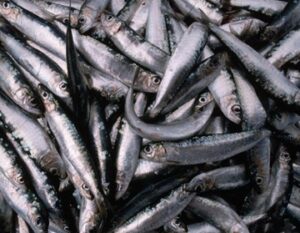 It’s an historic boom year for herring in Lake Superior, as a record number of the crucial fish appear to have survived to age one — a major developmental milestone. After decades of disappointing numbers, the huge swell of herring — a key facet of Lake Superior’s food web — could help bolster the ecosystem and fishing industry in the world’s second-largest freshwater lake. More herring can lead to healthier populations of those fish, a boon for commercial and recreational fishers. “It’s gonna change things for a long time to come in Lake Superior,” said Goldsworthy. >>click to read<< 12:14
It’s an historic boom year for herring in Lake Superior, as a record number of the crucial fish appear to have survived to age one — a major developmental milestone. After decades of disappointing numbers, the huge swell of herring — a key facet of Lake Superior’s food web — could help bolster the ecosystem and fishing industry in the world’s second-largest freshwater lake. More herring can lead to healthier populations of those fish, a boon for commercial and recreational fishers. “It’s gonna change things for a long time to come in Lake Superior,” said Goldsworthy. >>click to read<< 12:14
SNP fully scraps controversial fishing restrictions in final climbdown
 Scottish Government minister Màiri McAllan announced her party will no longer pursue divisive plans to restrict fishing in 10% of Scotland’s seas. The environmental policy aimed to protect sea life under threat but was met with a huge backlash from concerned rural and coastal communities. In June, Ms Allan said HPMAs would no longer be implemented on schedule by 2026 as government ministers went back to the drawing board. It came weeks after leading figures from the country’s seafood sector held a major protest outside Holyrood. Now Ms McAllan has revealed the proposals will be ditched entirely following the angry responses from fishing industry leaders opposed to the scheme. >>click to read<< 08:29
Scottish Government minister Màiri McAllan announced her party will no longer pursue divisive plans to restrict fishing in 10% of Scotland’s seas. The environmental policy aimed to protect sea life under threat but was met with a huge backlash from concerned rural and coastal communities. In June, Ms Allan said HPMAs would no longer be implemented on schedule by 2026 as government ministers went back to the drawing board. It came weeks after leading figures from the country’s seafood sector held a major protest outside Holyrood. Now Ms McAllan has revealed the proposals will be ditched entirely following the angry responses from fishing industry leaders opposed to the scheme. >>click to read<< 08:29
Lawsuit challenges new limits on offshore lobster traps
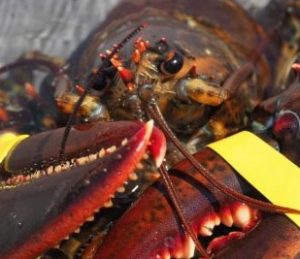 A New Hampshire lobster boat and a lobstermen’s association have filed a federal lawsuit to stop changes that would decrease the number of traps that can be used. The changes are for Area 3, which is about 30 miles offshore and runs up to the Canadian border down to the Carolinas. “That’s what this is supposed to be about, conservation of the resource,” Arthur “Sooky” Sawyer, president of the Massachusetts Lobstermen’s Association, said. Video, >>click to read<< 07:02
A New Hampshire lobster boat and a lobstermen’s association have filed a federal lawsuit to stop changes that would decrease the number of traps that can be used. The changes are for Area 3, which is about 30 miles offshore and runs up to the Canadian border down to the Carolinas. “That’s what this is supposed to be about, conservation of the resource,” Arthur “Sooky” Sawyer, president of the Massachusetts Lobstermen’s Association, said. Video, >>click to read<< 07:02
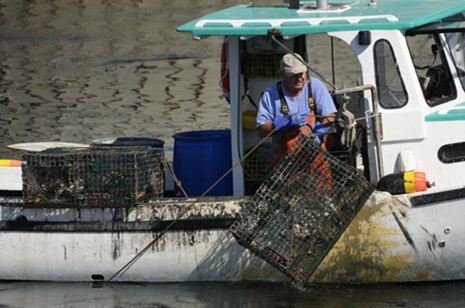
Lobstermen watching closely as federal regulators refine area for potential offshore wind
Lobster fishermen are watching closely as regulators continue to refine an area in the Gulf of Maine that could be used for offshore wind development, and they’re looking for more reassurances that the federal government will avoid popular fishing grounds. The federal Bureau of Ocean Energy Management has identified a 3.5 million acre draft area off the coasts of Maine, New Hampshire and Massachusetts that could be used for commercial offshore wind development. That proposed area excludes most of Lobster Management Area (LMA) 1, a popular offshore fishing area in Maine. But Zach Jylkka of the Bureau of Ocean Energy Management said some fishing grounds near or part of LMA 1 are still being studied and may be up for consideration, because they would be less expensive to develop. >>click to read<< 21:50
Maine: Electronic Tracking Requirements for Federally Permitted Lobster and Jonah Crab License Holders
 A Concise Summary: This rule-making incorporates the requirements in Addendum XXIX (American Lobster) and Addendum IV (Jonah crab) that were approved by the Atlantic States Marine Fisheries Commission (ASMFC) in March 2022. Specifically, for compliance with the Interstate Fisheries Management Plans, this regulation requires all federally-permitted lobster and Jonah crab license holders with commercial trap gear area permits to have approved electronic tracking devices. This requirement applies to all federally-permitted lobster and crab license holders with commercial trap gear for Lobster Conservation Management Areas (LCMAs) 1, 2, 3, 4, 5, and the Outer Cape Cod. >>click to read<< 17:49
A Concise Summary: This rule-making incorporates the requirements in Addendum XXIX (American Lobster) and Addendum IV (Jonah crab) that were approved by the Atlantic States Marine Fisheries Commission (ASMFC) in March 2022. Specifically, for compliance with the Interstate Fisheries Management Plans, this regulation requires all federally-permitted lobster and Jonah crab license holders with commercial trap gear area permits to have approved electronic tracking devices. This requirement applies to all federally-permitted lobster and crab license holders with commercial trap gear for Lobster Conservation Management Areas (LCMAs) 1, 2, 3, 4, 5, and the Outer Cape Cod. >>click to read<< 17:49
Will small boats soon have to slow down off NC to protect North Atlantic Right Whales?
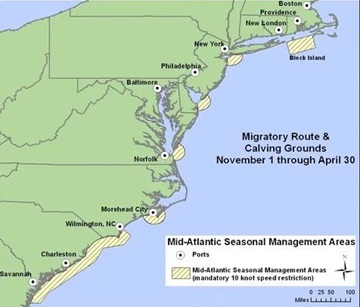 Vessel speed limits to help avoid fatal collisions between ships and one of the most endangered animals in the world that has fallen to around 350 individuals have gone back into effect off the U.S. Southeastern coast, including parts of North Carolina. The seasonal-management areas, or SMAs, limit the speed of most vessels 65 feet or longer to 10 knots, about 11.5 mph, in areas known to have heavy ship traffic that are also migratory routes or known calving grounds for the North Atlantic right whale. The go-slow zones, which run from November through April and have been in effect for more than a decade, extend about 20 nautical miles, or 23 miles, offshore and include areas around Morehead City and Beaufort and within 23 miles from shore between Wilmington and Brunswick, Ga. >>click to read<< 15:46
Vessel speed limits to help avoid fatal collisions between ships and one of the most endangered animals in the world that has fallen to around 350 individuals have gone back into effect off the U.S. Southeastern coast, including parts of North Carolina. The seasonal-management areas, or SMAs, limit the speed of most vessels 65 feet or longer to 10 knots, about 11.5 mph, in areas known to have heavy ship traffic that are also migratory routes or known calving grounds for the North Atlantic right whale. The go-slow zones, which run from November through April and have been in effect for more than a decade, extend about 20 nautical miles, or 23 miles, offshore and include areas around Morehead City and Beaufort and within 23 miles from shore between Wilmington and Brunswick, Ga. >>click to read<< 15:46
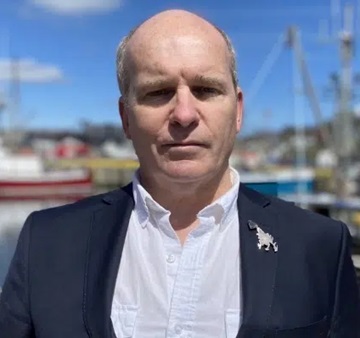
SEA-NL to Become For-Profit Fishery Co-operative
The Seaward Enterprises Association of Newfoundland and Labrador is looking to change the structure of the organization. SEA-NL has voted in favour of turning the organization into a for-profit fishery co-operative. It had previously been operating as a non-profit professional association. Executive Director Ryan Cleary says while Labrador’s industry is thriving under the co-op structure, Newfoundland’s is struggling under its current structure, so they are launching a steering committee to see what a co-op should look like on the island. >>click to read<< 11:46 >>click to read<< 11:55
Commercial Fisherman Robert Maxwell “Bob” Salter of Santa Cruz, California has passed away
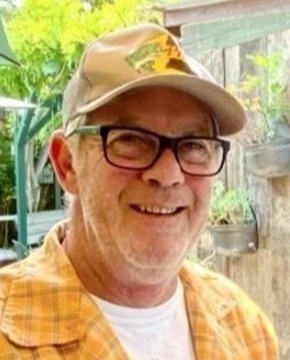 Family and friends are mourning the loss of beloved uncle and trusted friend, Bob Salter, who passed away at his Santa Cruz home with his loving family at his bedside. Bob was born in Santa Cruz to Frederick Salter and Fern Rianda Salter, he attended Delaveaga, B40, and Harbor High School. His father taught Bob the joy of fishing and love of the Sea. He grew up surfing and fishing with his brother Gary. His former boat was the Francis Jolene in the Santa Cruz Harbor. He fished for many seasons in Alaska and would visit family in Canada along the way. Bob had a lifelong career of commercial fishing and most recently fished out of Santa Cruz Harbor with Rick Ryan and his niece Bonnie Salter. >>click to read<< 10:27
Family and friends are mourning the loss of beloved uncle and trusted friend, Bob Salter, who passed away at his Santa Cruz home with his loving family at his bedside. Bob was born in Santa Cruz to Frederick Salter and Fern Rianda Salter, he attended Delaveaga, B40, and Harbor High School. His father taught Bob the joy of fishing and love of the Sea. He grew up surfing and fishing with his brother Gary. His former boat was the Francis Jolene in the Santa Cruz Harbor. He fished for many seasons in Alaska and would visit family in Canada along the way. Bob had a lifelong career of commercial fishing and most recently fished out of Santa Cruz Harbor with Rick Ryan and his niece Bonnie Salter. >>click to read<< 10:27
Norway: Cut to king crab quota recommended
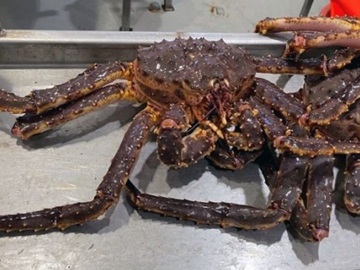 Based on the outcome of this year’s king crab survey, scientists at Norway’s Institute of Marine Research (HI) are recommending a hefty cut in the 2024 king crab quota to not more than 966 tonnes, as the survey results indicate a significant decline in the population. This means a substantial reduction compared to the quota advice for 2023, which was 2375 tonnes. ‘The result from this year’s survey shows a significant decrease in the number of crabs above the minimum target size for fisheries. The fact that we are now seeing a decline in the stock is, of course, bad news for the fishermen,’ said HI population manager for king crab, Carsten Hvingel. >>click to read<< 09:31
Based on the outcome of this year’s king crab survey, scientists at Norway’s Institute of Marine Research (HI) are recommending a hefty cut in the 2024 king crab quota to not more than 966 tonnes, as the survey results indicate a significant decline in the population. This means a substantial reduction compared to the quota advice for 2023, which was 2375 tonnes. ‘The result from this year’s survey shows a significant decrease in the number of crabs above the minimum target size for fisheries. The fact that we are now seeing a decline in the stock is, of course, bad news for the fishermen,’ said HI population manager for king crab, Carsten Hvingel. >>click to read<< 09:31
Vessel Review: Kapitan Sokolov
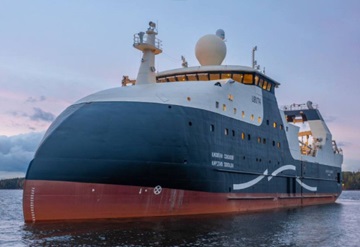 Russia’s United Shipbuilding Corporation, through its Severnaya Verf facilities in Saint Petersburg, has completed construction on a new freezer trawler ordered by local seafood company the Norebo Group. Kapitan Sokolov is the first of six Project 170701 freezer trawlers to be ordered by Norebo from Severnaya Verf. It has a steel hull, a length of 81.6 metres, a beam of 16 metres, a displacement of 5,500 tonnes, a hold capacity of nearly 1,500 tonnes of assorted fish products including fish meal and canned fish, and space for 80 crewmembers and fish processing personnel. >>click to read<< 08:34
Russia’s United Shipbuilding Corporation, through its Severnaya Verf facilities in Saint Petersburg, has completed construction on a new freezer trawler ordered by local seafood company the Norebo Group. Kapitan Sokolov is the first of six Project 170701 freezer trawlers to be ordered by Norebo from Severnaya Verf. It has a steel hull, a length of 81.6 metres, a beam of 16 metres, a displacement of 5,500 tonnes, a hold capacity of nearly 1,500 tonnes of assorted fish products including fish meal and canned fish, and space for 80 crewmembers and fish processing personnel. >>click to read<< 08:34
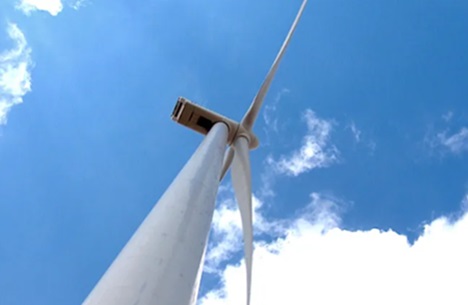
Fishermen in Maine lobbied to keep wind farms out of crucial fishing grounds. Will it happen in N.S.?
A no-compromise lobbying campaign by Maine lobster harvesters has helped keep wind farms out of a crucial lobster fishing area in the Gulf of Maine. And that has some fishermen in Nova Scotia casting an envious eye south of the border. “I’m pleased to see that happen in Maine. We’d like to see the same sort of diligence taken in Nova Scotia,” said Tommy Amirault, a fisherman from Pubnico and president of the Coldwater Lobster Association. “Maine obviously has concerns. It would be nice to 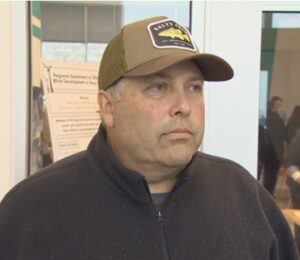 see both provincial and federal governments take our concerns into practice,” Amirault said. “We didn’t mince words that we opposed offshore wind anywhere in the Gulf of Maine. It’s one of the most productive ecosystems in the world. And we really didn’t think that this is the place to solve the renewable energy crisis,” said McCarron. In Nova Scotia, the process has just begun. He said it’s no surprise fishermen have concerns about where it happens. >>click to read<< 06:57
see both provincial and federal governments take our concerns into practice,” Amirault said. “We didn’t mince words that we opposed offshore wind anywhere in the Gulf of Maine. It’s one of the most productive ecosystems in the world. And we really didn’t think that this is the place to solve the renewable energy crisis,” said McCarron. In Nova Scotia, the process has just begun. He said it’s no surprise fishermen have concerns about where it happens. >>click to read<< 06:57
OPINION: North Pacific Fishery Management Council is acting to reduce bycatch
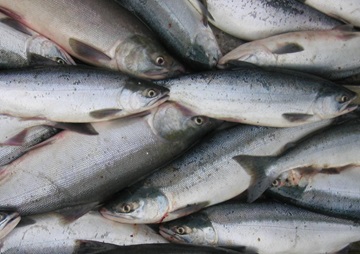 In a recent opinion piece, Brooke Woods, Linda Behnken and Nanci Morris Lyon stated, “Federal fisheries off Alaska are managed via the dictates of the North Pacific Fishery Management Council (NPFMC), which has done little to address the trawl fleet’s enormous bycatch of species immeasurably important to Alaskans.” Nothing could be further from the truth The council adopted hard caps for chinook salmon in the Bering Sea trawl pollock fisheries that vary depending upon the expected returns to western Alaska rivers. When expected returns are low, the caps are adjusted downward. Additionally, the fishing industry has stepped forward to implement chinook salmon avoidance measures that hold each vessel accountable for limiting bycatch to below the caps. In fact, the fleet is well below their caps, recognizing the need to rebuild these stocks. >>click to read<< 15:55
In a recent opinion piece, Brooke Woods, Linda Behnken and Nanci Morris Lyon stated, “Federal fisheries off Alaska are managed via the dictates of the North Pacific Fishery Management Council (NPFMC), which has done little to address the trawl fleet’s enormous bycatch of species immeasurably important to Alaskans.” Nothing could be further from the truth The council adopted hard caps for chinook salmon in the Bering Sea trawl pollock fisheries that vary depending upon the expected returns to western Alaska rivers. When expected returns are low, the caps are adjusted downward. Additionally, the fishing industry has stepped forward to implement chinook salmon avoidance measures that hold each vessel accountable for limiting bycatch to below the caps. In fact, the fleet is well below their caps, recognizing the need to rebuild these stocks. >>click to read<< 15:55
Doug Vincent-Lang
First Nations seek salmon return to Columbia Basin in new treaty with U.S.
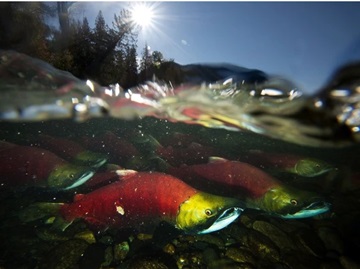 Representatives from the Ktunaxa and Syilx Okanagan nations say they continue to bring up salmon restoration in negotiations for a modern Columbia River Treaty and will not stop until a solution can be reached within or outside a new agreement. The U.S.-Canada treaty regulates the cross-border Columbia River to prevent flooding and generate hydro power. A key component of the 62-year-old treaty is set to expire in September 2024, lending urgency to the ongoing talks. “I think what we are doing in the fight to bring salmon back is vital to us moving forward,” said Lower Similkameen Indian Band Chief Keith Crow, who is a member on the Syilx Okanagan Nation’s Chiefs Executive Council and the Nation’s lead in the Columbia River Treaty talks. >>click to read<< 14:25
Representatives from the Ktunaxa and Syilx Okanagan nations say they continue to bring up salmon restoration in negotiations for a modern Columbia River Treaty and will not stop until a solution can be reached within or outside a new agreement. The U.S.-Canada treaty regulates the cross-border Columbia River to prevent flooding and generate hydro power. A key component of the 62-year-old treaty is set to expire in September 2024, lending urgency to the ongoing talks. “I think what we are doing in the fight to bring salmon back is vital to us moving forward,” said Lower Similkameen Indian Band Chief Keith Crow, who is a member on the Syilx Okanagan Nation’s Chiefs Executive Council and the Nation’s lead in the Columbia River Treaty talks. >>click to read<< 14:25
U.S. regulators will review car-tire chemical that kills salmon, upon request from West Coast tribes
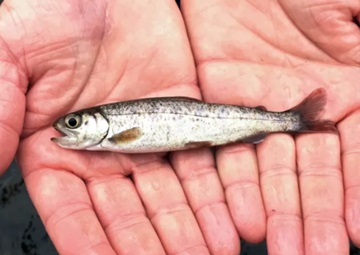 U.S. regulators say they will review the use of a chemical found in almost every tire after a petition from West Coast Native American tribes that want it banned because it kills salmon as they return from the ocean to their natal streams to spawn. The Yurok tribe in California and the Port Gamble S’Klallam and Puyallup tribes in Washington asked the Environmental Protection Agency to prohibit the rubber preservative 6PPD earlier this year, saying it kills fish — especially coho salmon — when rains wash it from roadways into rivers. Washington, Oregon, Vermont, Rhode Island and Connecticut also wrote the EPA, citing the chemical’s “unreasonable threat” to their waters and fisheries. >>click to read<< 10:14
U.S. regulators say they will review the use of a chemical found in almost every tire after a petition from West Coast Native American tribes that want it banned because it kills salmon as they return from the ocean to their natal streams to spawn. The Yurok tribe in California and the Port Gamble S’Klallam and Puyallup tribes in Washington asked the Environmental Protection Agency to prohibit the rubber preservative 6PPD earlier this year, saying it kills fish — especially coho salmon — when rains wash it from roadways into rivers. Washington, Oregon, Vermont, Rhode Island and Connecticut also wrote the EPA, citing the chemical’s “unreasonable threat” to their waters and fisheries. >>click to read<< 10:14
A business in crisis
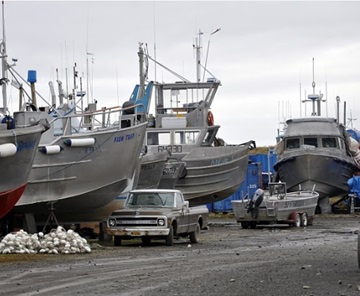 After years of choking on record runs of Bristol Bay sockeye salmon and near-record runs of heavily farmed, low-value pink salmon, the Alaska fishing industry is in chaos with processors now pleading for more government subsidies and coddled commercial fishermen demanding yet more disaster aid. One could blame global warming, which has led to historically unprecedented harvests of Alaska salmon despite whatever nonsense to the contrary the mainstream media might have reported, but the industry’s problems are far more complex than just trying to sell high-priced seafood in Western markets where the sales of animal protein are dominated by chicken, beef and pork. Some of the industry’s issues here are rooted in its long history. For most of the years after commercial fishing began in Alaska in the late 1800s, the business dealt almost wholly in canned salmon. >>click to read<< 08:41
After years of choking on record runs of Bristol Bay sockeye salmon and near-record runs of heavily farmed, low-value pink salmon, the Alaska fishing industry is in chaos with processors now pleading for more government subsidies and coddled commercial fishermen demanding yet more disaster aid. One could blame global warming, which has led to historically unprecedented harvests of Alaska salmon despite whatever nonsense to the contrary the mainstream media might have reported, but the industry’s problems are far more complex than just trying to sell high-priced seafood in Western markets where the sales of animal protein are dominated by chicken, beef and pork. Some of the industry’s issues here are rooted in its long history. For most of the years after commercial fishing began in Alaska in the late 1800s, the business dealt almost wholly in canned salmon. >>click to read<< 08:41

Wood and colleagues visit East Coast offshore wind project
“We as state legislators have a critical and essential role in fostering the offshore wind market in California by developing policies that support procurement and development, investment in ports and supply chains, and strategies and policies for maximizing local economic development,” said Wood. “We wanted to visit Massachusetts and attend this conference to learn what needs to be done and how to do it successfully. California has a number of key stakeholders and we need to make sure we are all rowing in the same direction, with the wind behind us, so to speak, avoiding any headwinds.” >>click to read<< 07:57
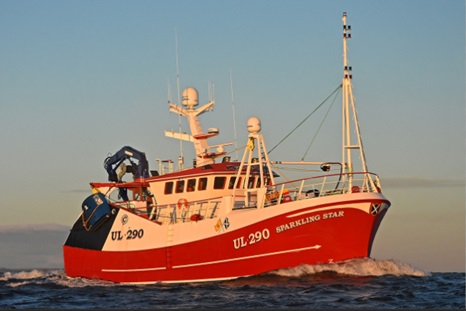
Quiksling proves its worth
The Quiksling retrieval device developed by George West proved its worth last summer when one of the crew of Scottish trawler Sparkling Star was caught in the gear when shooting away and pulled overboard. ‘Quick thinking by Ryan getting the Quiksling to him and lifted back aboard with the powerblock saved that lad’s life,’ skipper James Corbett reported. ‘It was a textbook recovery by the boys that just demonstrates the importance of proper training.’ >>click to read<<, and more here 06:47
Sinking of the Wild Alaskan – Document Dump #42
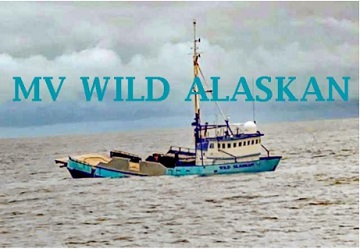 Document Dump #42 – In this Document Dump, I am releasing to the Public clear, convincing and undeniable evidence that certain Alaska State Troopers and Kodiak Chief of Police, Tim Putney are actively trying to cover-up one of Alaska’s biggest felony theft and destruction of property crimes in the history of this great state. I am a full supporter of Law Enforcement, just not the corrupt ones. As I have stated before, the actions of the Alaska State Troopers and the Alaska Bureau of Investigations have now morphed into a “HUB AND SPOKED WHEEL” RICO CONSPIRACY to cover-up a major crime which these people have no immunity from. There is no other way to explain it. Photos, >>click to read Document Dump #42<<. and more. 18:28
Document Dump #42 – In this Document Dump, I am releasing to the Public clear, convincing and undeniable evidence that certain Alaska State Troopers and Kodiak Chief of Police, Tim Putney are actively trying to cover-up one of Alaska’s biggest felony theft and destruction of property crimes in the history of this great state. I am a full supporter of Law Enforcement, just not the corrupt ones. As I have stated before, the actions of the Alaska State Troopers and the Alaska Bureau of Investigations have now morphed into a “HUB AND SPOKED WHEEL” RICO CONSPIRACY to cover-up a major crime which these people have no immunity from. There is no other way to explain it. Photos, >>click to read Document Dump #42<<. and more. 18:28
Canada’s largest fishing vessel will be ready for 2024, says Baffin Fisheries CEO
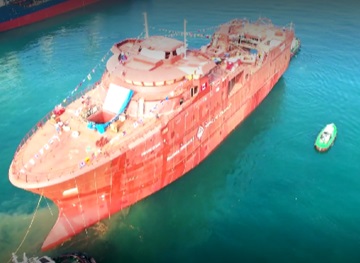 A ship being described as Canada’s largest fishing vessel — one that will soon make regular ports of call in Newfoundland harbours like St. Anthony, Harbour Grace and Bay Roberts was launched this week from a yard in Turkey, and the Nunavut-based owners say it’s on track to be harvesting turbot and shrimp from Arctic waters by next year. The vessel will also bear a name that’s quite familiar to ship-spotters in Newfoundland and Labrador: Inuksuk II. Baffin Fisheries currently operates a fleet of three fishing vessels, including the MV Inuksuk I. The vessel is 80 metres long, 18 metres wide, and will be capable of carrying up to 1,300 tonnes of frozen-at-sea turbot or 930 tonnes of shrimp. In comparison, the Inuksuk II is six metres longer than the Calvert, the newest vessel in Ocean Choice International’s fleet. >>click to read<< 14:30
A ship being described as Canada’s largest fishing vessel — one that will soon make regular ports of call in Newfoundland harbours like St. Anthony, Harbour Grace and Bay Roberts was launched this week from a yard in Turkey, and the Nunavut-based owners say it’s on track to be harvesting turbot and shrimp from Arctic waters by next year. The vessel will also bear a name that’s quite familiar to ship-spotters in Newfoundland and Labrador: Inuksuk II. Baffin Fisheries currently operates a fleet of three fishing vessels, including the MV Inuksuk I. The vessel is 80 metres long, 18 metres wide, and will be capable of carrying up to 1,300 tonnes of frozen-at-sea turbot or 930 tonnes of shrimp. In comparison, the Inuksuk II is six metres longer than the Calvert, the newest vessel in Ocean Choice International’s fleet. >>click to read<< 14:30
Commercial fish report shows impact of set-net closure
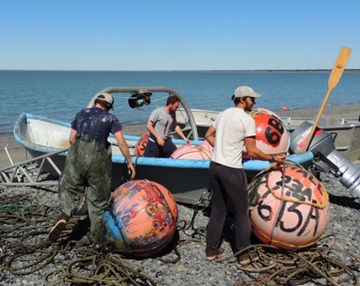 A recent report from the Alaska Department of Fish & Game shows the impact of the closure of a prominent fishery on the 2023 season for the commercial salmon industry in Upper Cook Inlet. Set-netters are worried about the future of their fishery, and the possible long-term impacts of over escapement. In Upper Cook Inlet, the report says, the 2023 commercial salmon harvest was about 40% lower than the 20-year average. Commercial fishermen caught 1.9 million salmon in the upper inlet, compared to the 20-year average of 3.1 million. Fish & Game attributes most of that decline to the closure of the east side set-net fishery, which the department closed before the season even began in anticipation of low king salmon numbers. >>click to read<< 13:04
A recent report from the Alaska Department of Fish & Game shows the impact of the closure of a prominent fishery on the 2023 season for the commercial salmon industry in Upper Cook Inlet. Set-netters are worried about the future of their fishery, and the possible long-term impacts of over escapement. In Upper Cook Inlet, the report says, the 2023 commercial salmon harvest was about 40% lower than the 20-year average. Commercial fishermen caught 1.9 million salmon in the upper inlet, compared to the 20-year average of 3.1 million. Fish & Game attributes most of that decline to the closure of the east side set-net fishery, which the department closed before the season even began in anticipation of low king salmon numbers. >>click to read<< 13:04
Pyridine ‘unlikely’ to be cause of mass shellfish die-off on Teesside, new test finds
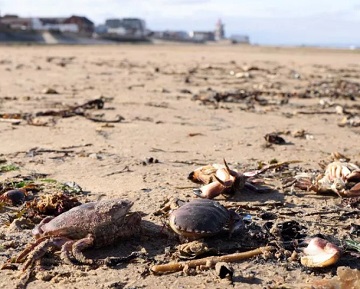 The latest investigation into the cause of mass creature die off along the North East coast has found an industrial chemical is unlikely to be the cause. The Government has today issued the findings of an investigation by the independent experts at the Centre for Environment, Fisheries and Aquaculture Science, who used a new method to test for the chemical, pyridine, in animal tissue and sediments. The original incident between October and December 2021 saw crustaceans washed ashore with dying creatures “twitching” and displaying lethargic behaviour right along the coast from Hartlepool down to Whitby. >>click to read<< 11:38
The latest investigation into the cause of mass creature die off along the North East coast has found an industrial chemical is unlikely to be the cause. The Government has today issued the findings of an investigation by the independent experts at the Centre for Environment, Fisheries and Aquaculture Science, who used a new method to test for the chemical, pyridine, in animal tissue and sediments. The original incident between October and December 2021 saw crustaceans washed ashore with dying creatures “twitching” and displaying lethargic behaviour right along the coast from Hartlepool down to Whitby. >>click to read<< 11:38
Virginia fisherman sentenced for illegally harvesting $37K worth of striped bass
 A Virginia fisherman has been sentenced for illegally harvesting striped bass over the course of several years. Commercial fisherman Keith J. Martin, 52, was sentenced to four months in prison on Oct. 26. He was required to begin his sentence by noon Dec. 12. It was recommended by the court to the Bureau of Prisons that Martin be incarcerated in a medical facility. Upon his release, Martin was sentenced to three years of supervised release. On the condition of and for the duration of his supervised release, Martin will be prohibited from participating in any form of commercial fishing,,, >>click to read<< 09:11
A Virginia fisherman has been sentenced for illegally harvesting striped bass over the course of several years. Commercial fisherman Keith J. Martin, 52, was sentenced to four months in prison on Oct. 26. He was required to begin his sentence by noon Dec. 12. It was recommended by the court to the Bureau of Prisons that Martin be incarcerated in a medical facility. Upon his release, Martin was sentenced to three years of supervised release. On the condition of and for the duration of his supervised release, Martin will be prohibited from participating in any form of commercial fishing,,, >>click to read<< 09:11
Newfoundland fishermen get ‘best news’ on northern cod stocks in a generation
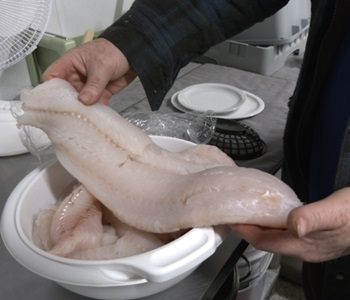 It’s a technical, scientific change: the Limit Reference Point, a key part of the assessment of a fish stock’s health, has been revised. Because of a change in their scientific method, officials at Fisheries and Oceans Canada now believe that Newfoundland’s northern cod stock has moved out of the critical zone for the first time in decades. When then-fisheries minister John Crosbie shut down most of the fishery in 1992, about 30,000 fish harvesters instantly lost their jobs. It was the biggest layoff in Canadian history. Fish harvesters were given $225 a week for 10 weeks to get by. The moratorium was only expected to last two years, but in the decades since, the northern cod stock never left the critical zone — until now. photos, >>click to read<< 07:44
It’s a technical, scientific change: the Limit Reference Point, a key part of the assessment of a fish stock’s health, has been revised. Because of a change in their scientific method, officials at Fisheries and Oceans Canada now believe that Newfoundland’s northern cod stock has moved out of the critical zone for the first time in decades. When then-fisheries minister John Crosbie shut down most of the fishery in 1992, about 30,000 fish harvesters instantly lost their jobs. It was the biggest layoff in Canadian history. Fish harvesters were given $225 a week for 10 weeks to get by. The moratorium was only expected to last two years, but in the decades since, the northern cod stock never left the critical zone — until now. photos, >>click to read<< 07:44






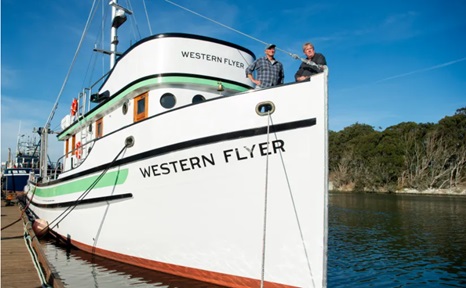
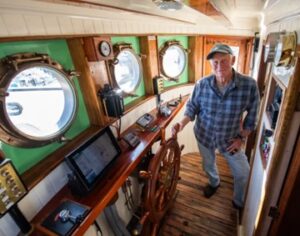
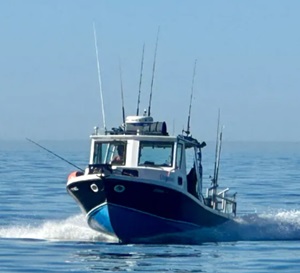



























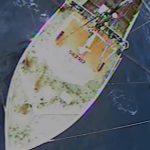
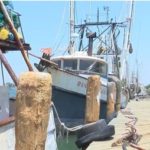
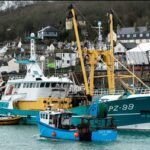
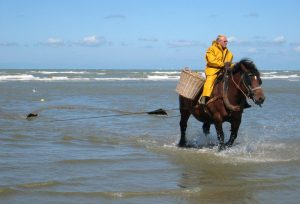
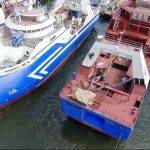

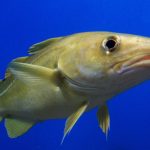
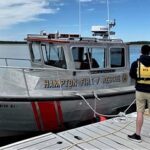
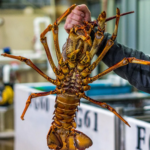
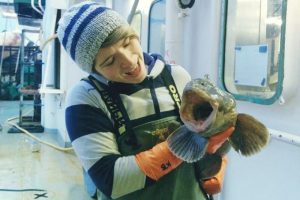
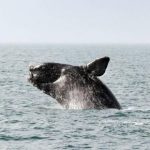
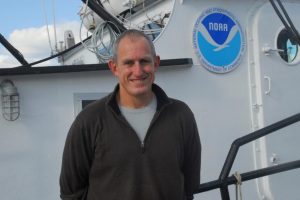

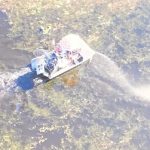



Stevenson: It’s time for public comments on offshore wind
Share this post